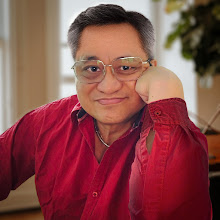Image source: Paul Ancheta
ONE HUNDRED twenty Bahá’í singers from twenty-five countries flew into India this month and sang in chorus on stage. The result: an experience that dazzled with the expressive majesty of the divine word, the ethnic sophistication of Ravi Shankar’s melody, and the effervescent power of the choral voice.
Collectively known as the The Voices of Bahá, the choir performed from 16-26 June in five cities with noted Indian singers Ashit and Hema Desai. Under American composer Tom Price’s leadership, the concert made history: it marked the choir’s debut in India and the first choral performance of Mr. Shankar’s compositions for the Bahá’í House of Worship (also known as the Lotus Temple) in New Delhi since they were last sung during the temple’s 1986 opening.
Not wanting to miss this history-making event, I attended the Mumbai show on 18 June and the New Delhi one last night (26 June). The venues were two of India’s finest destinations: the National Centre for the Performing Arts (NCPA) on the shores of the Arabian Sea in south Mumbai, and the Bahá’í House of Worship on the hills of Bahapur in south New Delhi. Extraordinary art, after all, deserves such extraordinary exhibit spaces.
At the NCPA, the Jamshed Bhabha Theatre turned full house with well-heeled theatre patrons and Bahá’ís from Mumbai and Pune. I wanted to see the audience reaction: Mumbai, for all its fame as India’s premier cosmopolitan hub, does not have a strong tradition for choral music. The crowd reaction delighted me. From the vigorous applause that greeted Mr. Price’s introductions to the reverential hush that heeded every song, it was clear that the audience loved The Voices of Bahá, and how. The show, though, was not without a hitch: microphone issues hindered the singers from projecting effectively into the cavernous hall. Thankfully, as the show progressed, the setbacks failed to overwhelm the effusive harmony of voice and instrument, words and music. And when the crescendos of “Allahumma” and “O Bahá’u’lláh” hit the rafters and the audience cheered blazingly, I knew that the evening created a miracle.
While the Mumbai show was spirited, the Delhi show was spiritual. Basking in the glow of the choir’s music were rural villagers and urban denizens, seated together in the temple’s solemn prayer hall. I sat with Bahá’ís from Bahrain and Bengaluru, and saw a couple of Sikhs in their turbans. We were a diverse audience, and we were silent: this was, after all, a prayer hall. Even Mr. Price’s song introductions in Mumbai were replaced with recitations of sacred Bahá’í text.
The House of Worship was the perfect showcase for The Voices of Bahá, a logical, closing-night ending for a road tour that tightened the group’s harmonies, deepened their confidence, and sharpened their longing to come face-to-face (or voice-to-voice) with the temple of their Faith in Asia. As the evening passed, the marble walls resonated with full-bodied harmonic echoes and shimmered with warm yellow lights. The effect seemed too perfect for this world. I will always remember this as the one night in India that The Voices of Bahá turned into an evening of splendor.

